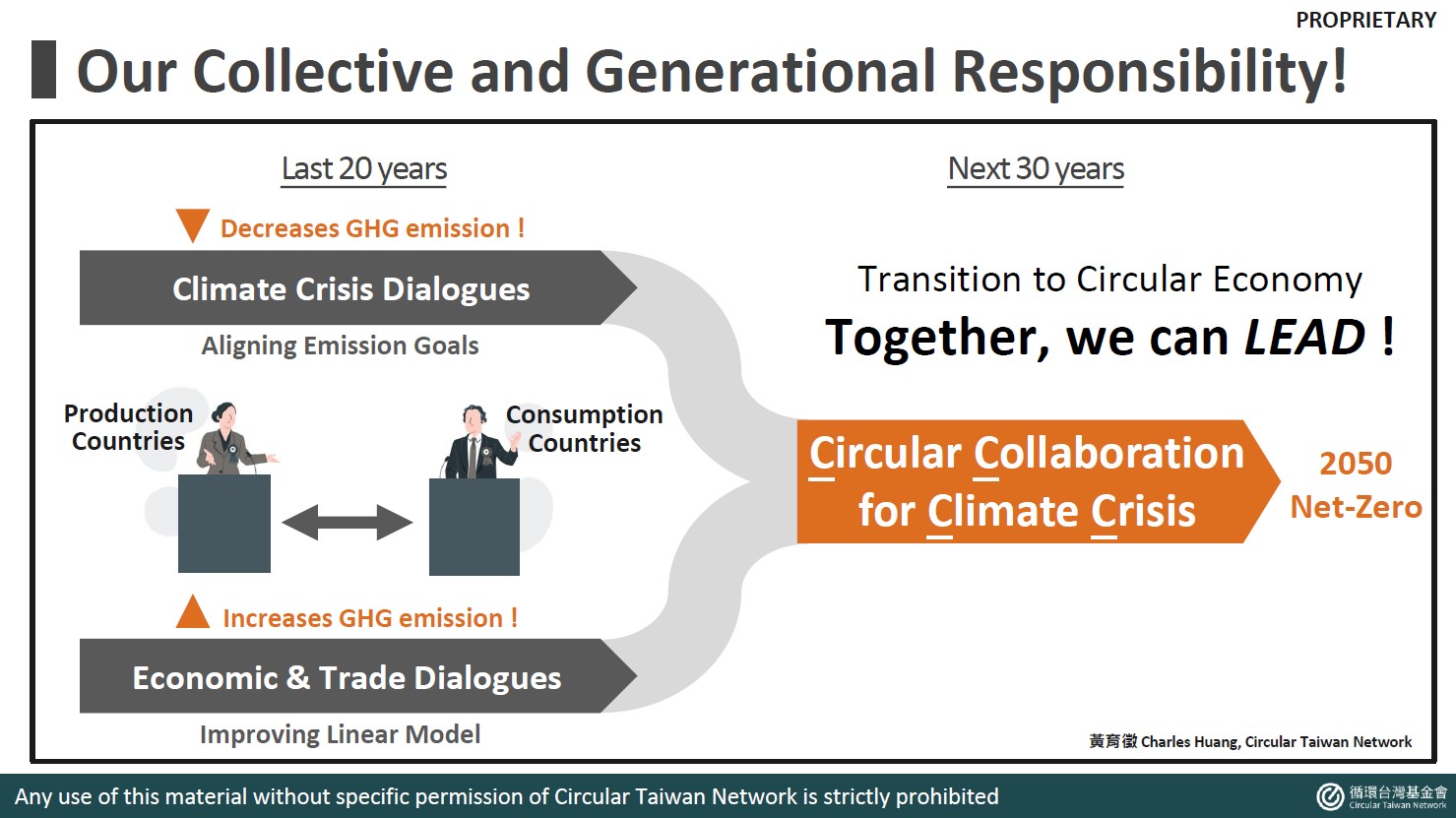Countries around the world are pursuing net-zero goals, aiming to achieve carbon neutrality by 2050. Taiwan is actively advancing toward this objective, with circular economy emerging as a key topic in its dialogue with the European Union (EU).
Taiwan: An Ideal Partner for Advancing the Circular Economy
At the online seminar held on June 16, titled "The EU Green Deal: Prospects for EU-Taiwan Circular Economy Cooperation," Member of the European Parliament Alexandr Vondra emphasized Taiwan’s strategic role by stating, "Taiwan is an ideal partner for promoting the circular economy." He also stressed that EU countries should refrain from shipping waste to Asian countries for disposal. Given Taiwan's vital position in the EU's ICT supply chain, both sides should work closely to facilitate the transition to a circular economy.
Joanna Drake, Deputy Director-General of the European Commission's Directorate-General for Environment, highlighted the EU Green Deal’s focus on decoupling economic growth from resource consumption. Circular economy practices not only foster economic and environmental well-being but also create job opportunities and improve quality of life.
Meanwhile, Chang Tzu-ching, Minister of Taiwan's Environmental Protection Administration (EPA), expressed Taiwan's commitment to enhancing bilateral cooperation with the EU. He also mentioned Taiwan’s plans to establish a Ministry of Environment and Resources to accelerate circular economy policy development.

Collaborating Across Product Life Cycles: A Partnership Between Production and Consumption Countries
Charles Huang, Chairman of the Circular Taiwan Network, addressed the misconceptions surrounding the linear economy, including the privatization of profits and the externalization of costs. While corporate social responsibility (CSR) and environmental, social, and governance (ESG) initiatives play a role in addressing the climate crisis, Charles asserted that circular economy principles provide a more fundamental and sustainable solution for energy, environment, climate, health, and land issues.
Given the EU's position as Taiwan's fourth-largest trading partner, circular economy cooperation will play a pivotal role in strengthening long-term bilateral trade and facilitating industrial transformation.
Kestutis Sadauskas, Director for Circular Economy and Green Growth at the European Commission's Directorate-General for Environment, introduced the EU's "Sustainable Products Initiative" aimed at reducing waste and promoting the use of circular materials. He emphasized the importance of joint efforts between production and consumption countries to redesign products from a life-cycle perspective, suggesting that Taiwan and the EU can mutually share knowledge and experiences in this field.
Ying-Ying Lai, Director of the EPA's Waste Management Division, highlighted Taiwan's progress in plastic resource management, including recycled plastics, packaging reduction, and textile circularity. She also suggested that Taiwan and the EU collaborate on plastic and biomass-related initiatives.
In support of this notion, Jian-Chih Chen, Chairman of BenQ Materials, proposed forming a collaborative task force consisting of stakeholders from EU member states and Taiwan's ICT sector to drive industrial transformation.
Concluding the event, Chairman Charles underscored that for the past two decades, international dialogues on climate crises and trade have often operated in parallel without intersection. Climate discussions aim to reduce greenhouse gas emissions, while trade dialogues often lead to increased emissions. Looking ahead, he emphasized the need to integrate these conversations through circular economy cooperation. Achieving this integration is not only a collective responsibility but also an obligation for future generations.
